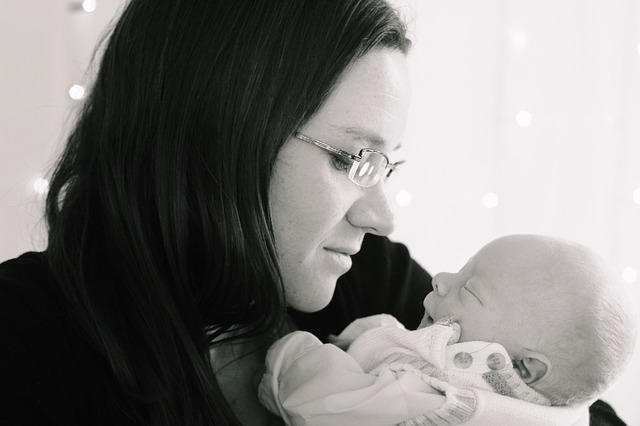In the previous post, I discussed mindfulness for postpartum depression and shared the story of Kristi Pahr and a range of relevant mindfulness resources. In this post, I want to focus on the research that has been conducted on the use of mindfulness in preparation for childbirth.
Research in the area of mindfulness for mothers suggests that developing mindfulness during pregnancy can assist the mother not only during the perinatal period but also during the birth of a child and the postnatal period. The benefits of mindfulness practice before birth can flow over to the postnatal period and help to prevent or alleviate the effects of postnatal depression.
Research on Mindfulness for Childbirth
Both pregnancy and childbirth challenge the resilience of a mother and the postnatal period brings its own stressors with the need to care for a newborn baby. Mindfulness, in concert with social support, can help to ward off postnatal depression and assist in keeping both mother and baby healthy and happy.
Fear associated with expecting the worst in labour and the graphic sharing, both orally and in writing, of difficulties experienced by other mothers, compounds the natural anxiety of expectant mothers. This, in turn, can make labour more difficult and prolonged and lead to other undesirable outcomes such as increased need for pain relief or other medical intervention and increased possibility that the mother will experience postnatal depression.
The Guardian in June 2017 carried a report of research conducted by Dr. Larissa Duncan and her colleagues based on the 2.5 days, weekend workshop, Mind in Labor (MIL) – developed and conducted by experienced midwife Nancy Bardacke, author of Mindful Birthing: Training the Mind, Body, and Heart for Childbirth and Beyond.
The focus of the Guardian article was on the question, Can mindfulness reduce the fear of labour and postpartum depression? The reported research involved a randomised group (with some participants randomly assigned to complete the mindfulness course, while others [the control group] did not undertake the mindfulness training). The research group covered 30 expectant, first-time mothers in their 3rd trimester of pregnancy.
Participants in the mindfulness training were given specific coping skills for birthing including learning to reframe the experience of pain, learning how to decouple pain sensations from negative thoughts and emotions, and developing personalised strategies with their partners to cope with the birthing process and beyond. They were also exposed experientially to a range of mindfulness practices such as mindful walking, mindful breathing, body scan, sitting meditation, mindful eating and coping with pain through experiencing pain mindfully (holding ice blocks in their hands).
The conclusions reported in the research project by Dr. Duncan and her colleagues were stated as follows:
This study suggests mindfulness training carefully tailored to address fear and pain of childbirth may lead to important maternal mental health benefits, including improvements in childbirth-related appraisals and the prevention of postpartum depression symptoms. There is also some indication that MIL participants may use mindfulness coping in lieu of systemic opioid pain medication.
Translated this means that the mindfulness training participants had increased belief in their capacity to handle the pain of birthing (self-efficacy), better ability to manage the pain through mindfulness techniques, greater body awareness, more positive perception of their experience of childbirth and less symptoms of postnatal depression.
As expectant mothers grow in mindfulness through tailored mindfulness training and practice, they are better able to manage the pain associated with childbirth and at the same time are less likely to suffer postnatal depression.
By Ron Passfield – Copyright (Creative Commons license, Attribution–Non Commercial–No Derivatives)
Image source: courtesy of 3907349 on Pixabay
Disclosure: If you purchase a product through this site, I may earn a commission which will help to pay for the site, the associated Meetup group and the resources to support the blog.



